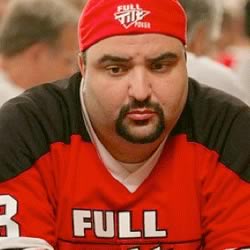After entering a guilty plea in New York federal court this week via a video feed from California, where he awaits a heart transplant, former Full Tilt poker head honcho Ray Bitar was contrite.
Bitar was reported to have expressed deep remorse for his involvement in the site’s downfall, saying, “I regret my actions. I know they were wrong and illegal. I am very sorry.”
“I’m very sorry for the problems that Full Tilt Poker got into. It never should have happened,” Bitar went on.
News broke last week that a guilty plea was forthcoming from Bitar, who was arrested last summer after he flew back to the United States from Ireland, where Full Tilt was operated. Early reports noted Bitar’s dire health circumstances, however they did not indicate to which charges Bitar would be pleading or what kind of penalty he would be facing, though it was insinuated that the punishment was unlikely to include jail time given Bitar’s physical state.
On Monday Bitar entered two guilty pleas to charges of conspiracy and a violation of the 2006 UIGEA. The government had accused Full Tilt of operating akin to a Ponzi scheme, with founders such as Bitar pocketing millions while more than $300 million in player deposits has gone missing, according to the Wall Street Journal. The paper says that Bitar claims to be assisting in the location of the missing funds.
More was revealed about Bitar’s health situation this week as well, with it being noted that he has been classified as having Class IV heart failure, a condition that the American Heart Association describes as “cardiac disease resulting in inability to carry on any physical activity without discomfort” wherein “symptoms of heart failure or the anginal syndrome may be present even at rest.”
Remarking that the outcome of this case is quite unusual owing to Bitar’s ill health, US District Judge Loretta Preska sentenced Bitar to time served. He will also be required to forfeit his assets, which are said to be around $40 million in cash and property.
Without a heart transplant, Bitar’s doctors said that death is likely within a timeframe of six to twelve months. Imprisonment, noted Judge Preska, is an almost certain death sentence for Bitar, not only because the penal system is not capable of providing the type of advanced health care a patient with Bitar’s condition requires, but also because his status as an inmate would render him an unlikely recipient for an organ donation.
“I don’t think anyone would trade positions with him no matter what,” the judge said.

